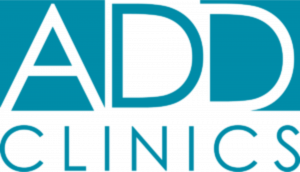
Addressing Co-Morbidities in Adult ADD - Insights from Dr. Stanford Owen of ADD Clinics
The Complexity of Adult ADD and Co-Morbid Conditions
Unlike children whose brain development stages are closely tied to growth and environmental influences, adults experience brain changes that are often intertwined with various medical conditions and their associated medications. "Each stage of adulthood and aging is associated with developing illness and medications, each affecting brain function," explains Dr. Owen. This intricate interplay demands a highly personalized approach to treatment and ongoing management as conditions evolve.
Common Co-Morbidities Affecting Adults with ADD
Dr. Owen highlights several prevalent health issues that frequently coincide with ADD in adults, impacting brain function and complicating treatment strategies:
Type 2 Diabetes: Termed "diabetic dementia" by Dr. Owen, this condition reflects how prolonged high blood sugar levels disrupt cellular repair and energy functions, including those of brain cells. The condition is reversible as sugar metabolism improves, underscoring the importance of managing diabetes effectively.
Menopause and Hormonal Changes: Hormonal loss in both women and men affects dopamine production, a critical neurotransmitter for brain cell communication. Tailored hormone replacement is often necessary to optimize brain function.
Substance Abuse: Alcohol and THC are the most commonly abused substances that impair brain function, with severe usage leading to lasting brain changes. "Chronic use leads to permanent changes in various parts of the brain and can lead to changes in behavior," Dr. Owen notes, emphasizing the need for treatment and counseling in such cases.
Sleep Disorders: Particularly sleep apnea, prevalent in about 20% of the adult population, often correlates with obesity and can disrupt critical brain repair functions during sleep. Treatment with devices like CPAP can significantly improve brain function by stabilizing sleep patterns.
Thyroid Disorders: Both hyperthyroidism and hypothyroidism can dramatically affect brain function due to their roles in metabolic regulation. Regular thyroid testing is recommended as part of any ADD evaluation.
Nutritional Deficiencies: Iron and B12 deficiencies can impair neurotransmitter function and should be addressed to mitigate symptoms like brain fog and fatigue. "Iron deficiency always requires an explanation," Dr. Owen advises, highlighting the need for thorough medical evaluation.
Medication Interactions and ADD
The impact of various medications, especially those prescribed for epilepsy, chronic pain, and neurological diseases, can further complicate the treatment landscape for adults with ADD. "Adults with ADD should always be treated by someone expert on the effects of medications on the brain," states Dr. Owen, pointing to the potential for significant improvements in brain function with proper medication management.
Invitation for Consultation and Care
Dr. Owen and the team at ADD Clinics invite individuals struggling with ADD and related health issues to seek specialized care that considers the full spectrum of their health needs. Tailored treatment plans are essential for managing ADD effectively in adults, given the complex interplay of co-morbidities and life changes.
Morgan Thomas
Rhino Digital, LLC
+ 15048755036
email us here
EIN Presswire does not exercise editorial control over third-party content provided, uploaded, published, or distributed by users of EIN Presswire. We are a distributor, not a publisher, of 3rd party content. Such content may contain the views, opinions, statements, offers, and other material of the respective users, suppliers, participants, or authors.



